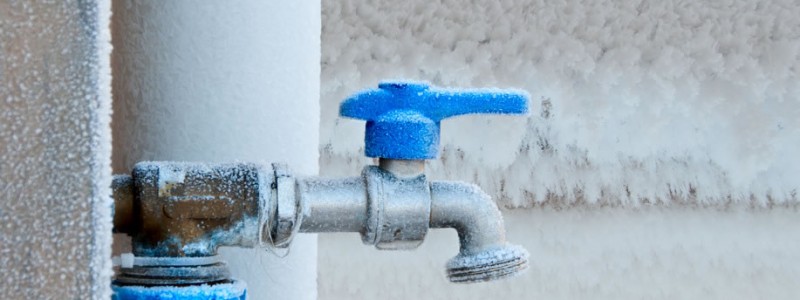
Preparing for the cold weather
Now the weather has turned colder, after one of the best summers we can remember for some time, it’s clear that it won’t be long until the first frost.
If the water in a pipe freezes, the water expands and this can burst the pipe. When the water thaws this is likely to cause leaks and can create a significant amount of damage. To avoid frozen pipes, it is essential to insulate.
Any pipes or cisterns which may be exposed to temperatures below zero should be insulated. These could be outside water taps and pipes, or tanks or cisterns in an attic. Overflow pipes, including those from condensing boilers, are also at real risk as the dripping water can freeze and gradually block the pipe leading to heating failure.
How to prevent damage:
Draining pipes
If you don’t need to use the pipe during the winter, for example, an outside water tap, we would recommend that you isolate the water supply to the pipe and then drain out any water. If the pipe is empty there is no danger of damage from ice.
Insulating pipes
Your local DIY store will stock a number of different insulating materials. Perhaps the most common and easiest to apply are foam tubes. You can purchase these in various lengths and they are split along one side to allow you to ‘clip’ them over your pipework. These tubes can be bent to fit curves and can be cut to accommodate sharper angles. You can fasten the lengths together with insulating tape. Do ensure that you read the details of the products you use, in order to ensure that they will give you the protection you need.
Condensate pipes
As with other pipes, the external part of the pipe should be insulated as appropriate. If your pipe does freeze and you can reach it from ground level, you can try to thaw the water by holding a hot water bottle or microwaveable heating pack against the exterior pipe. Be careful if using warm water as this may well freeze on impact with the ground and become very slippy. You should never use boiling water.
Insulating Water Cisterns
Any cisterns or tanks which could be exposed to freezing temperatures (e.g. in lofts or attics) must be insulated. Usually the manufacturer of the cistern will also sell kits for insulating their product. You should ensure that the insulation covers the top of the cistern, but you need not insulate the bottom as this will benefit from the heat rising from the rest of the house.
If you need any help with insulation or are concerned about frozen pipes, please contact us.
